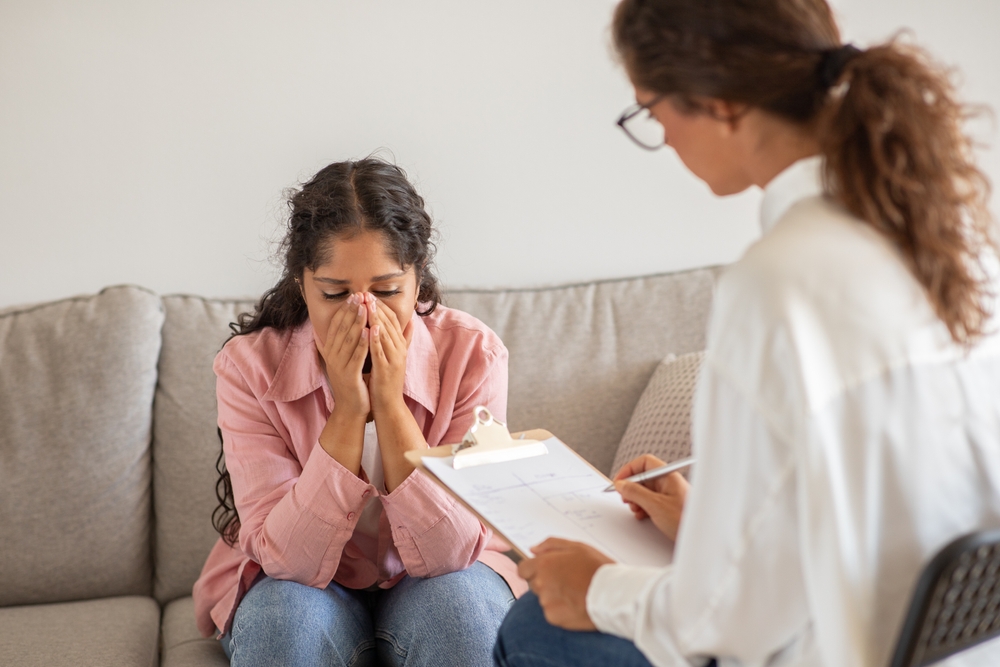Last Updated:
July 23rd, 2025
Aftercare | Support Beyond Your Time in Rehab
What is aftercare in addiction recovery?
Once rehab ends, you may be left wondering what comes next. For weeks, sometimes months, you’ve had a structured environment, daily therapy sessions, a routine and a support system to lean on. Then suddenly, you’re back in the world with responsibilities and temptations that didn’t just disappear. That’s where aftercare comes in.
Aftercare is the stage of addiction recovery that begins once formal treatment ends. It’s not an afterthought or a bonus. It’s a crucial part of the journey that helps you build a long-term recovery that feels real and sustainable. Rehab lays the groundwork but aftercare is where you start learning how to live with that progress in everyday life.
The goal of aftercare is to prevent relapse and support personal growth. It gives you the time and space to test your new coping strategies with steady guidance still available. Whether you’re just out of rehab or have been clean for a while, aftercare helps you stay grounded and connected.

What services are included in aftercare?
Aftercare isn’t a single service. It’s made up of ongoing support options that are usually tailored to meet your needs. The most common include:
Counselling and therapy
This can involve individual or group sessions where you explore your thoughts, triggers and behaviours. It gives you space to talk through new challenges and check in with yourself emotionally.
Support groups (alumni)
Peer-led support groups often include people who’ve been through the same rehab programme. It’s a space to share progress, hear from others and stay motivated alongside people who understand your journey.
Sober living homes
These are residential places for people in early recovery who need continued structure and accountability. They provide a safe and drug-free environment while you rebuild your life at a steady pace.
Relapse prevention programmes (recovery)
These courses are designed to help you spot early warning signs and fine-tune your coping skills. They also give you a space to revisit your recovery plan and adapt it as life evolves.
In what setting does aftercare take place in?
Aftercare is often offered by the same clinic or centre where you completed rehab or by a partner service nearby. Sessions might take place weekly, fortnightly or monthly, depending on what feels manageable. The setting is usually calm and focused on ongoing support rather than formal treatment.
For people who’ve moved away, are busy with work or have other commitments, online aftercare is available too. Zoom sessions and digital support groups make it possible to stay involved from wherever you are. Therapy, group discussions and even relapse prevention programmes can all be done remotely, keeping things flexible without compromising support.
What are the benefits of aftercare?
You might be wondering what the point of aftercare is, especially if you feel strong now but recovery doesn’t end when you leave treatment. It simply changes form. Here’s how aftercare can help you keep going.
It brings structure back into your routine
Rehab gives you a clear schedule and plenty of support. Leaving that behind can be unsettling. Aftercare provides a touchpoint in your week or month that reminds you of what matters. Whether it’s a therapy session, a support group or just a phone check-in, these moments help keep you centred.
It helps your recovery adjust to real life
Some tools that worked in rehab may not suit your daily life outside. You might face different triggers, stress levels or environments. Aftercare helps you tweak your recovery plan, not because you’ve failed but because life has changed and so must your support.
It keeps you connected to understanding people
Being around others who’ve walked a similar path makes a difference. Aftercare offers a space where you don’t have to explain yourself. Whether you’re doing well or going through a hard patch, you’re among people who get it. That kind of connection makes recovery feel less isolating.
It lowers the chances of relapse
Cravings and doubts don’t vanish when rehab ends. But regular aftercare can act as a protective layer. If something starts to wobble, you’ve got someone to speak to before things unravel. Knowing that help is there can stop small slips from turning into setbacks.
It helps you build a life that isn’t just about staying sober
Recovery isn’t only about avoiding substances. It’s about finding meaning and fulfilment. Some aftercare services help you reconnect with your goals, build emotional resilience and find healthy outlets. The focus shifts from surviving to building something steady and worthwhile.
Will I be able to attend aftercare if I relapse?
Yes. In fact, relapse is one of the moments when aftercare becomes even more important.
Relapse is often viewed as something shameful but it’s far more common than people think. It doesn’t mean all your progress is lost. It simply means that something in your plan may no longer be working as well as it used to.
You might find that a strategy that once helped you now feels outdated. Or maybe you’re dealing with a new type of pressure you weren’t prepared for. Aftercare gives you a chance to sit down with someone, talk it through and update your approach.
Relapse doesn’t mean you’ve failed and it certainly doesn’t mean you should disappear from your support system. If anything, it means you need that support more than ever. One of the most helpful things about aftercare is that it’s built to flex with your needs. It doesn’t focus on being perfect, it focuses on staying connected.

Recovery isn’t a straight path. Most people have a few stumbles. What matters most is that you keep showing up, keep asking for help and keep going. Aftercare teams don’t expect you to have it all figured out. They just want to help you figure out what works next.
How can I enrol on aftercare services?
Most residential rehab programmes include aftercare as part of their offering, helping you continue your recovery once treatment ends. But if you’ve completed rehab elsewhere or didn’t receive aftercare for any reason, know that you’re not alone. Addiction Helper is here for you.
Whether you’re looking to join a support group, speak to a therapist or find a structured relapse prevention plan, we’re just a phone call away. We’ll listen to your situation and connect you with the right aftercare service to support your next step. Your recovery doesn’t stop here and neither does our support.
Our compassionate team are ready and available to take your call, and guide you towards lasting the lasting addiction recovery you deserve.

